
The Share4Rare End Event was a successful closure meeting
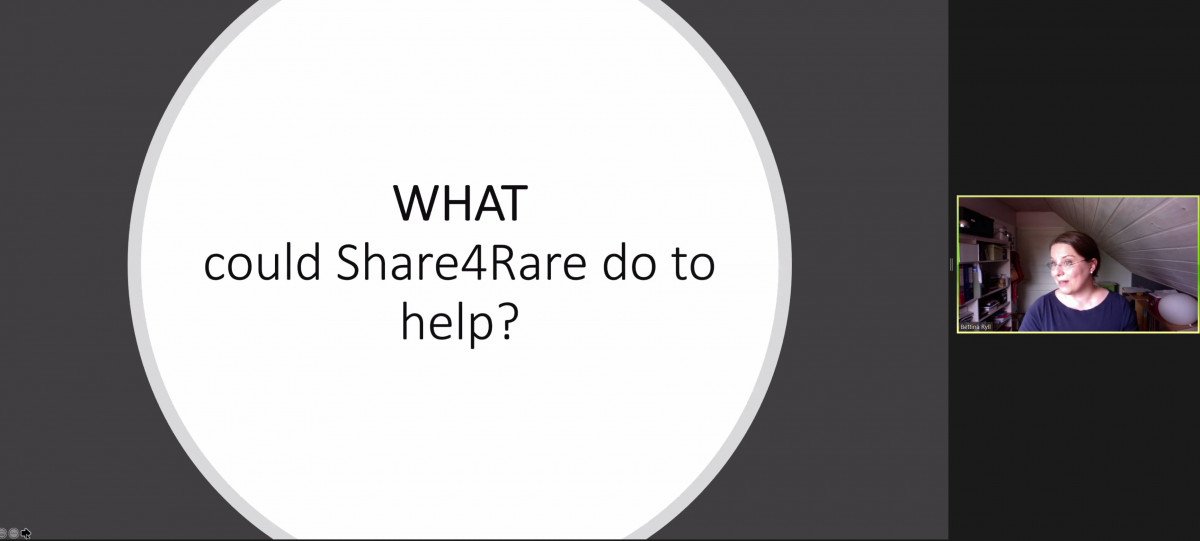
Loretta Anania, Programme Officer with the European Commission and DG CONNECT, opened the meeting. “Having a patient-centred approach was something really exceptional. [Share4Rare] was part of the collective awareness platform call for social innovation and sustainability. Putting the social in front of innovation, the individual in front of the technology. This project is about setting up a platform which is trusting and in the interest of the patients, where doctors are also benefitting from this rich data that comes from citizens that are sharing it”.

Patient involvement in research
Following the introduction, MPNE’s Bettina Ryll gave a keynote about patient involvement in research. She concluded that patients need to be involved in any type of research, as it leads to better outcomes. This can be seen in terms of relevance, better conduct of research and better implementation of research findings. In the case of clinical trials, patient involvement leads to fair designs for patients.
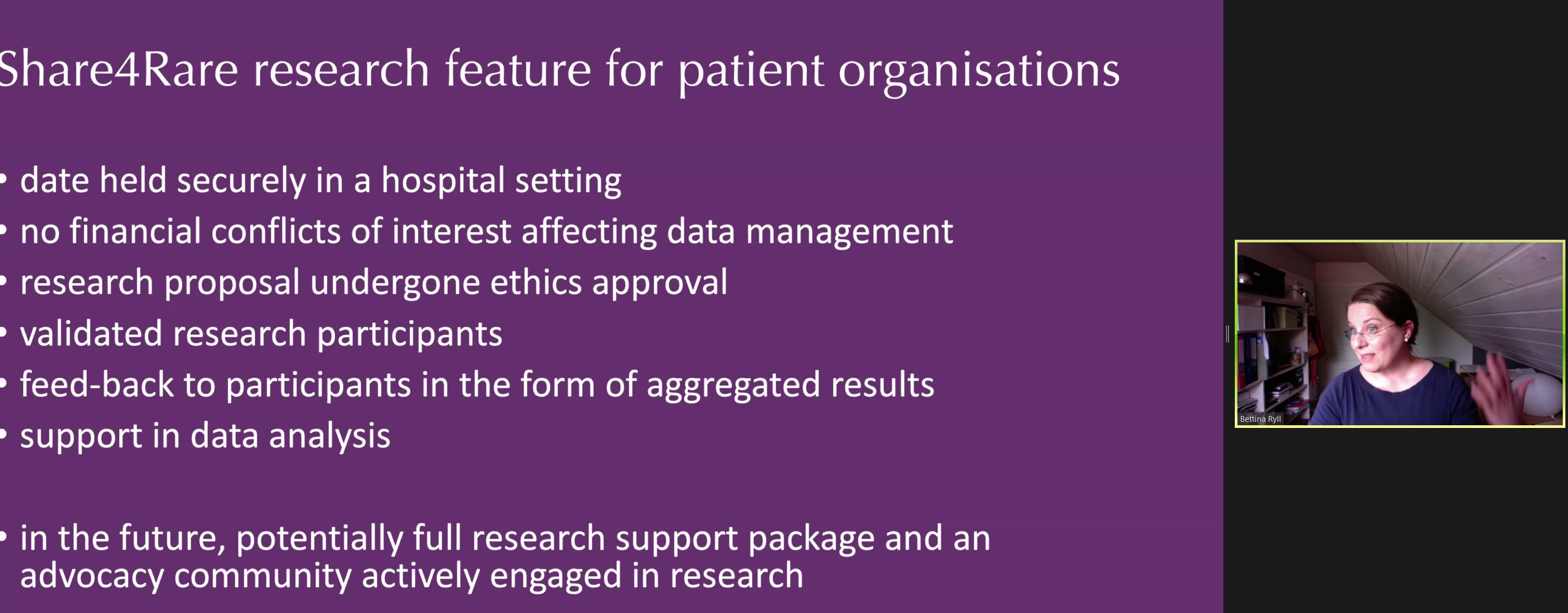
Platform testimonials
In a series of testimonials, platform users shared their experience on using the platform that connects rare disease patients. Both Jeffrey Galuidi and Sandra Iglesias (the latter from the association for undiagnosed patients Objetivo Diagnóstico) talked about their personal perspective and how the platform has helped them to connect with the broader rare disease community.
Share4Rare tools
Next to the platform itself, the various Share4Rare tools were presented. These included the V2A2 tool to promote patient agency, the Patient Advocacy Toolkit, the Medical Books, and the innovative People Like Me algorithm function. All these tools were created together with patients to empower them in the field of research, advocacy, science or community.
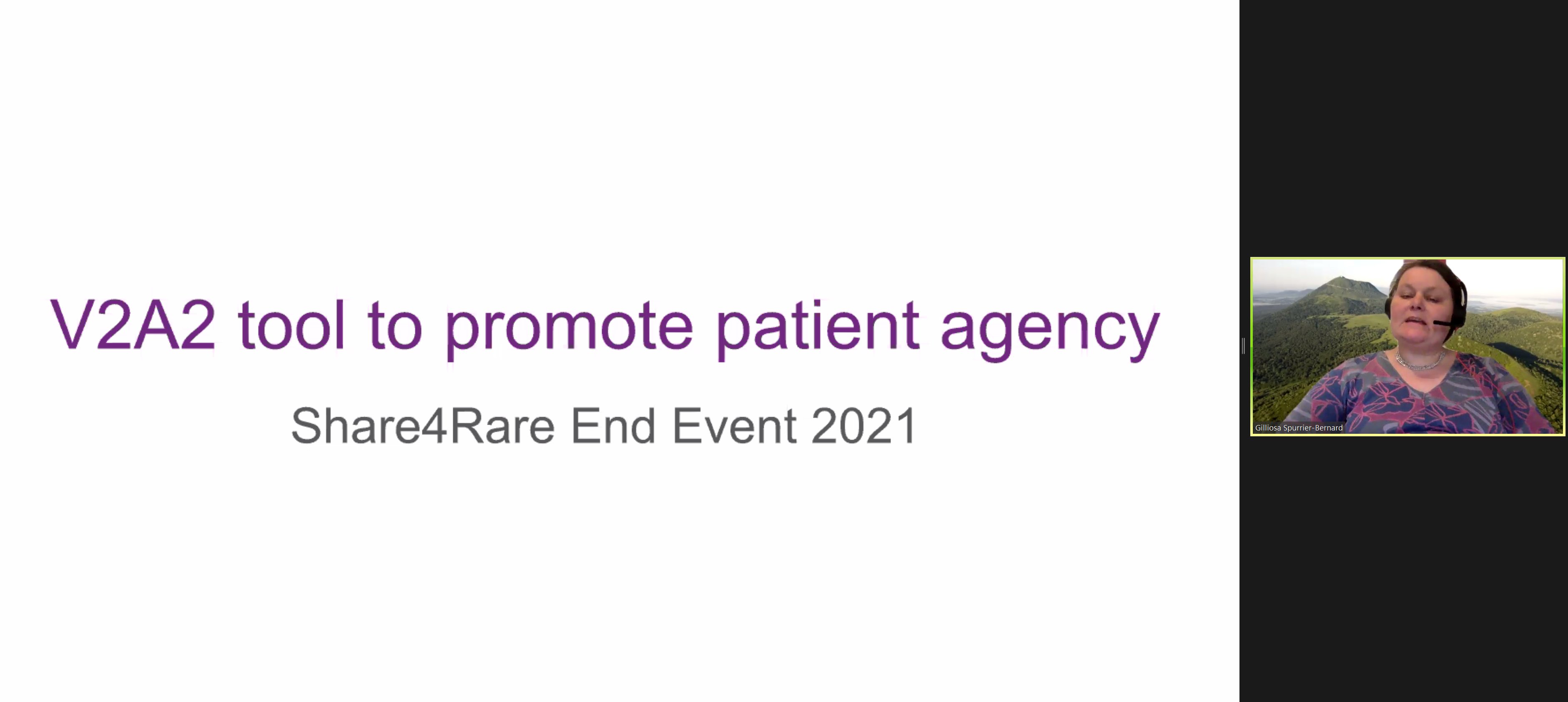
Research pilot
After the break, Dr. Michela Guglieri presented the preliminary outcomes of one of the research pilots. The research project on neuromuscular diseases focuses on how living with a neuromuscular condition affects work and education opportunities. As the pilot is still ongoing, the broader neuromuscular community is still invited to join and complete the questionnaires. The final results will be published in a few months’ time.
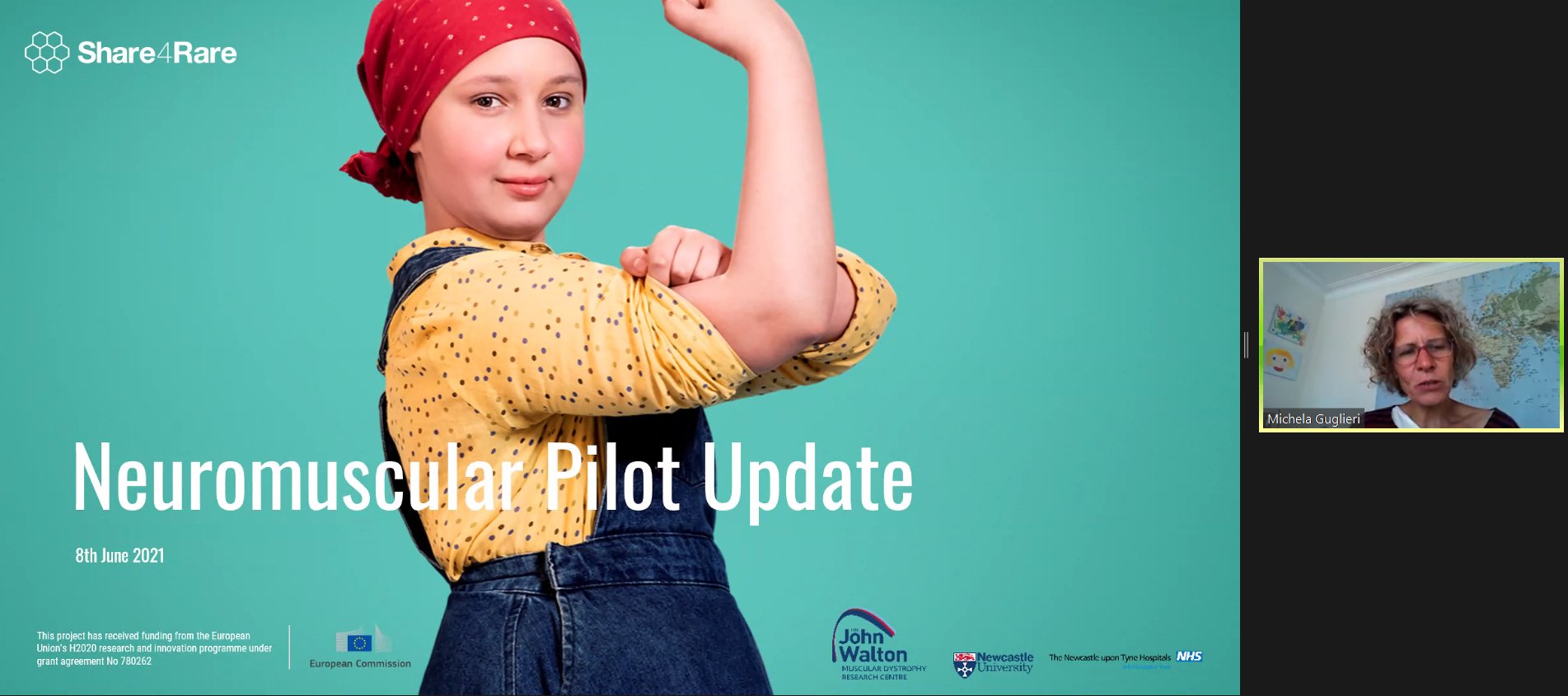
European health data space
DG Sante’s Hugo van Haastert was invited to share his learnings on rare diseases and the European health data space. He explained that health data is an important issue for the European Commission, and that it is working on the priorities of rare disease patients and the digital transformation of healthcare. There are multiple research, innovation and collaboration initiatives ongoing to further strengthen the healthcare of the 21st century.
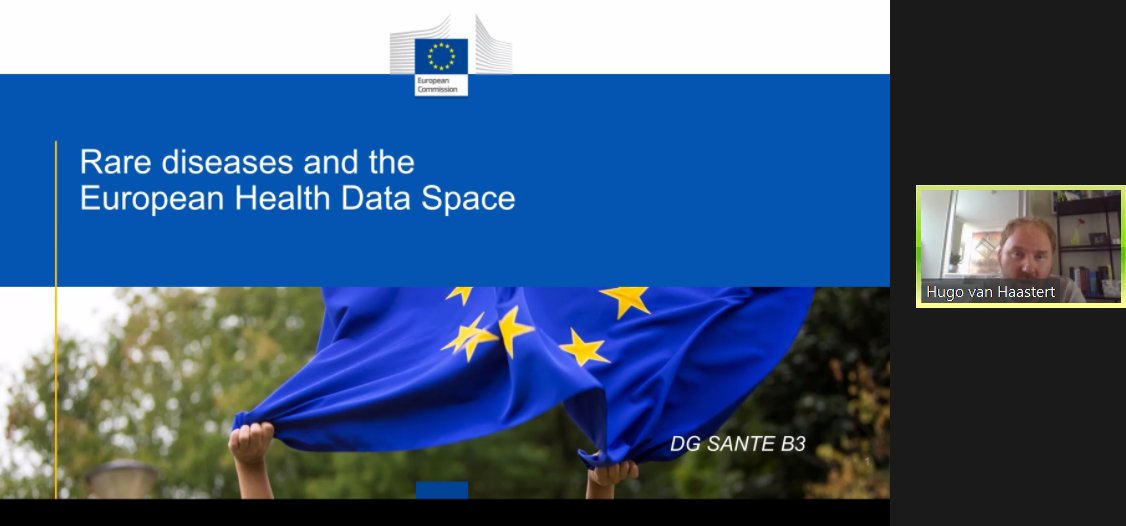
Learnings of Share4Rare
Following the talks on data, Gilliosa Spurrier-Bernard (MPNE) presented the learnings of the Share4Rare project. Reflections were gathered in the form of a co-creation workshop where consortium partners shared their insights and learnings during the project. Next to this, Begonya Nafria (FSJD) concluded 10 things we learned on the Share4Rare project. This forms the basis of future rare disease research through citizen science. Learnings included how to involve patient organisations in reaching patients, which approaches can be implemented to create trust and safety, and how to reach out and connect with the ultra-rare and undiagnosed patient populations.
Patient-driven research projects
Anaïs le Corvec then presented the first open call for patient-driven research projects. Here Share4Rare invites patient organisations and researchers in the field of rare diseases to apply for conducting their patient-centred studies within the platform.
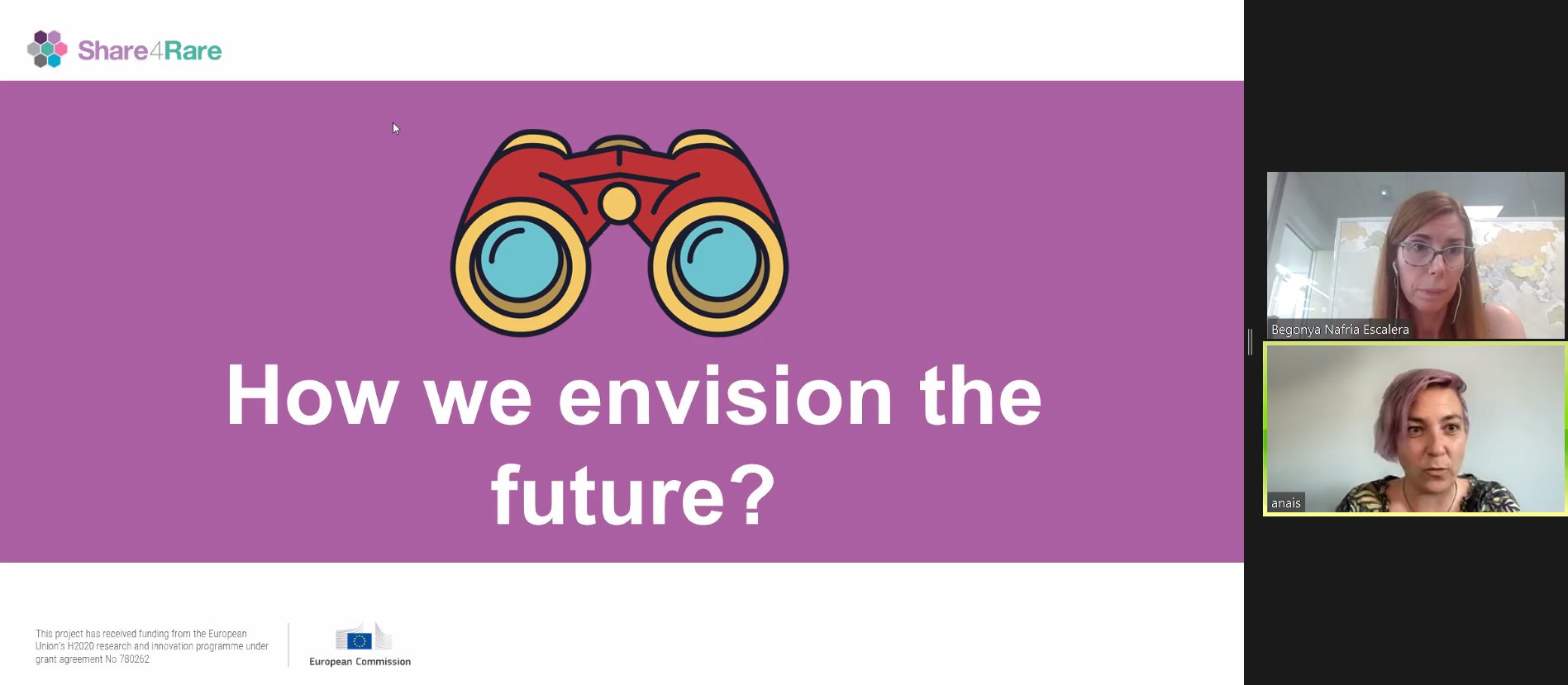
In conclusion, the end event was a successful culmination of four years of intense work by an international consortium. Dimitrios Athanasiou: “The health data landscape has evolved drastically throughout the project’s lifespan. Share4Rare was one of the first CAPS projects that challenged the current paradigm of data ownership, sharing and research reasoning. Th project focused on designing an approach that puts the patient first, and benefits all stakeholders. Patients are the owners of their data and data sharing is critical for the care and the research in rare diseases! Next to this, the leadership of a hospital ensures the data is safe, valid, updated, and under patient control. All of this without pushing lengthy and difficult protocols to the rare disease patients and their communities. The learnings we gathered are an asset for any future patient-centric rare disease project".
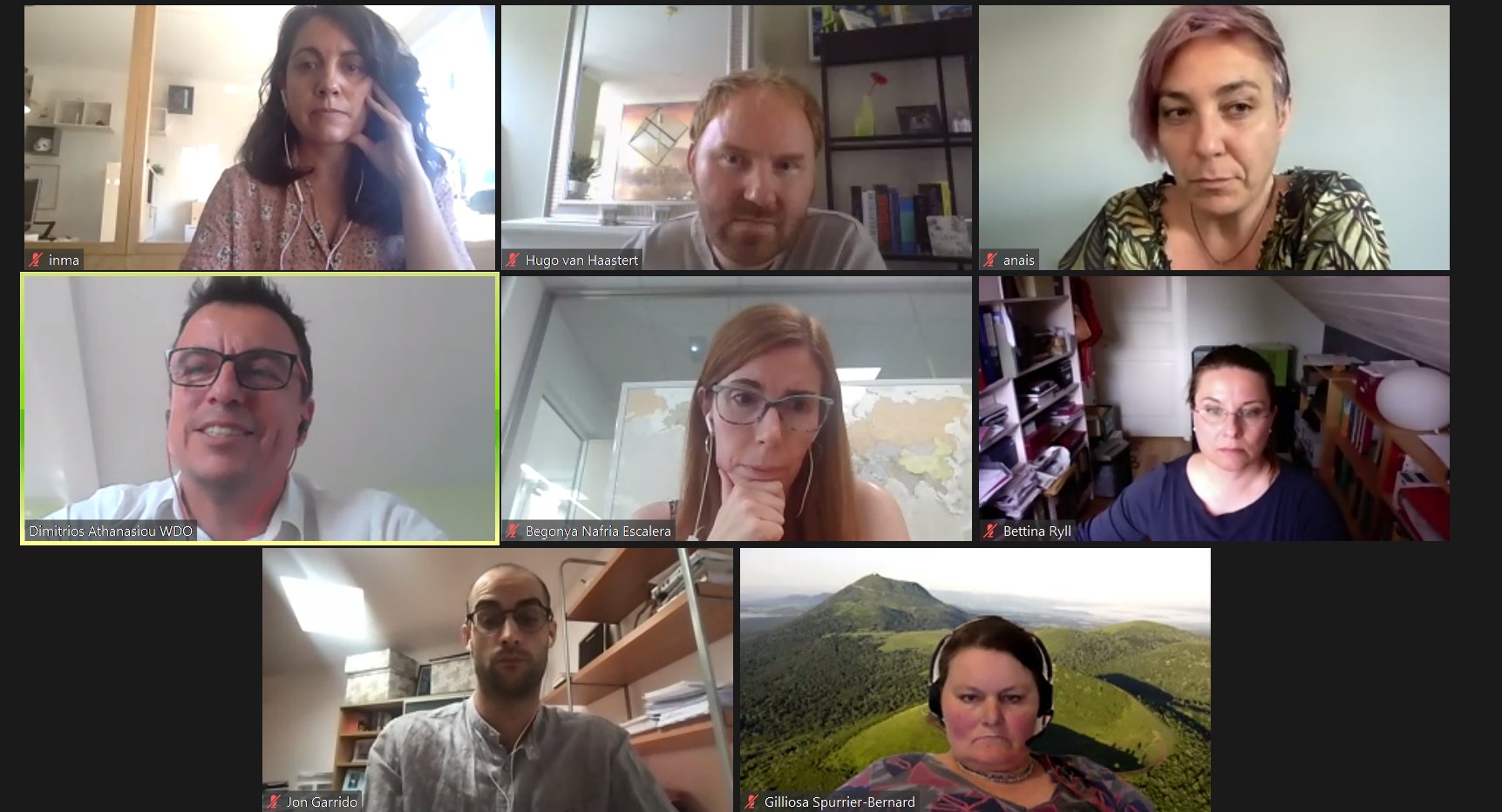
Link to event in English: https://youtu.be/Wc1-OU5NmAw
Link to event with Spanish interpretation: https://youtu.be/r4lExR6LsR4
